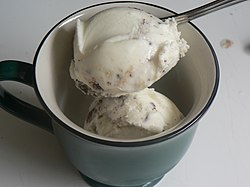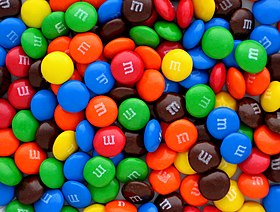There are certain foods that are promoted as being healthy
despite all evidence to the contrary. As I come across them, they’ll be part of
an occasional post called Faux Health Foods.
- Frozen Yoghurt.
 |
| Image from wiki |
100-gram serve contains
92.8 kcal
17.5 g total carbohydrates (no breakdown of sugar)
 |
| Yum |
It may seem as if I’m anti frozen yoghurt, rest assured I’m not. As I said, I’ve eaten it a few times, more than 100g and with all the toppings, and I’ll most likely eat it again at some point. Lets not pretend it’s a healthy food though. It’s a treat. It’s a yummy, cold, flavourful treat that’s packed with sugar and empty calories and if we want to treat ourselves, or just feel so inclined, we can eat it occasionally. But it’s not healthy.
Alternatives
Simply Recipes has a beautiful looking recipe for blueberry frozen yoghurt. http://www.simplyrecipes.com/recipes/blueberry_frozen_yogurt/
Simply Recipes has a beautiful looking recipe for blueberry frozen yoghurt. http://www.simplyrecipes.com/recipes/blueberry_frozen_yogurt/
You’ll notice the amount of sugar used. It does say you can
adjust it to taste. Or alternatively, I’d try it with coconut sugar.
- Bottled fruit juice
 |
| A glass of pulp-free orange juice, Wiki |
If you’re trying to
lose weight, watch out. Its so easy to drink juice, you may not realise how
many calories you’re consuming. Fruit juice is also quite high on the glycaemia
index. Why? Because its all that thick bulky fibre that helps to slow the
absorption of the sugars. If you take the fibre out, the sugars get absorbed
really quickly, making it high GI. Some juices even have added sugar. In order to get the nutritional stats, I randomly selected a bottle of orange juice from the supermarket. These are the facts
200mL serving size
370kJ or 88.5 calories
18.8 g carbohydrates
16.6 g sugar
added flavour.
Since when did oranges need more orange flavour? Aside from that, you can see that per tiny 200mL serve, there is 16.6g of sugar and no fibre. Empty calories. Again, I'm not suggesting you never drink juice. Just minimise it. The piece of fruit is a health food, prepackaged juice is a treat.
200mL serving size
370kJ or 88.5 calories
18.8 g carbohydrates
16.6 g sugar
added flavour.
Since when did oranges need more orange flavour? Aside from that, you can see that per tiny 200mL serve, there is 16.6g of sugar and no fibre. Empty calories. Again, I'm not suggesting you never drink juice. Just minimise it. The piece of fruit is a health food, prepackaged juice is a treat.
Alternatives
Eat the fruit. Otherwise, consider blended smoothies. See my post on 25 Heavenly Healthy Smoothies. Yum.
Eat the fruit. Otherwise, consider blended smoothies. See my post on 25 Heavenly Healthy Smoothies. Yum.
- Smoothies from café’s and retail outlets
If you have a look at the ingredients of many of these
smoothies, they’re frozen yoghurt (or ice cream) and juice. Sure, sometimes
they blend in some actual fruit, you can get ones with protein powder, you may
get some greens. Unfortunately the bulk is still frozen yoghurt and juice.
Alternatives
Again, you could make your own. Otherwise, choose the options without the frozen yoghurt. Opt for ones where you can see the whole fruit or vegetable going in and see if you can add ground seeds for fibre. Health and Nutrition Coach Amelia Burton recommends following the 2 veg 1 fruit rule in your smoothies. She also suggests using coconut milk instead of juice.
Again, you could make your own. Otherwise, choose the options without the frozen yoghurt. Opt for ones where you can see the whole fruit or vegetable going in and see if you can add ground seeds for fibre. Health and Nutrition Coach Amelia Burton recommends following the 2 veg 1 fruit rule in your smoothies. She also suggests using coconut milk instead of juice.
As I said, this will be a sporadic post when I see junk
foods posing as healthy options. Hope this helps.
No comments:
Post a Comment